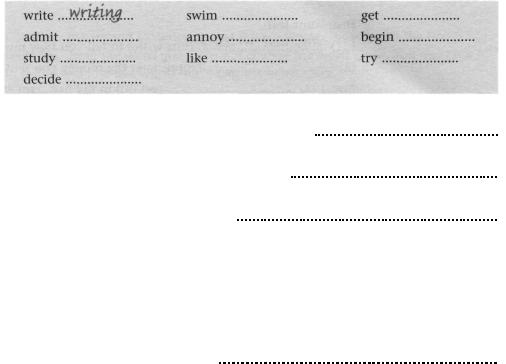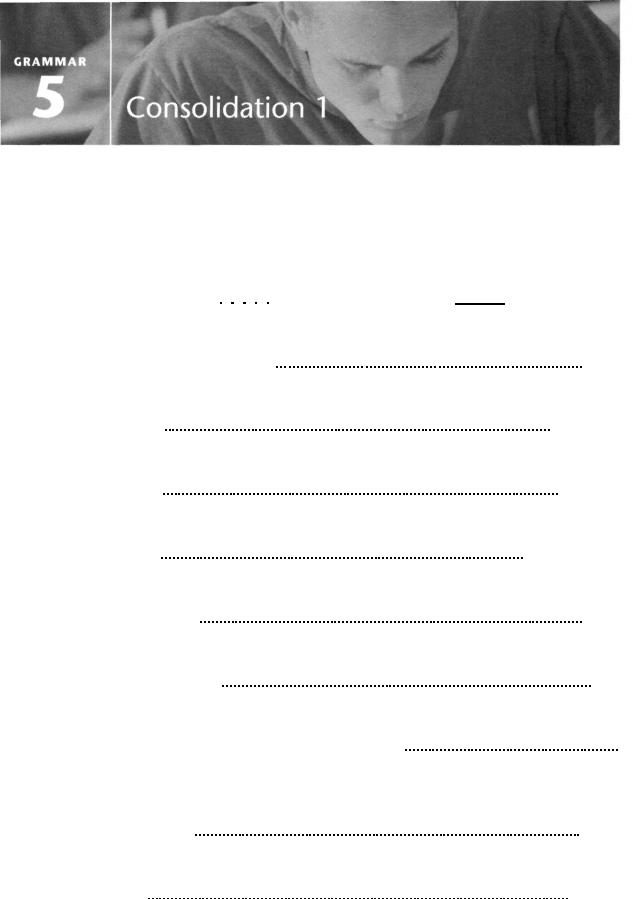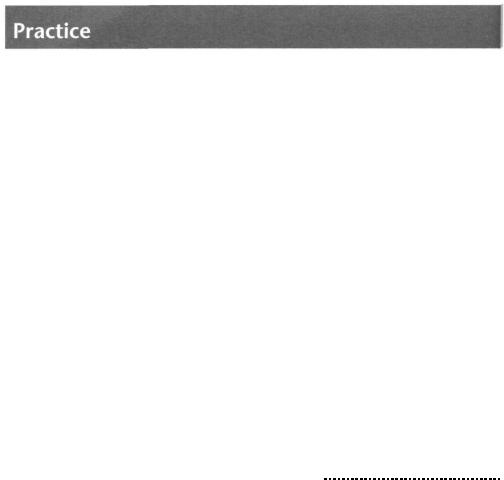Linking and reduction allow us to connect sounds of words for smooth transitioning and to avoid awkward pauses. In spoken English, we have 3 basic ways of how to link words in a sentence and a unique way of how to reduce words.
In this article, we will learn how to link CONSONANT to CONSONANT, CONSONANT to VOWEL, and VOWEL to VOWEL.
Let’s take a closer look at each of these basic linking strategies.
Linking Consont to Consonant
When the same consonant sound is found at the end of one word and at the beginning of the next, there is no break in speech; rather, the consonant sound is simply held for a slightly longer time.
Let’s consider the following example below:
what time
Instead of saying the words as two separate words, wha/t/ /t/ime, we link the last /t/ sound of the first word and the first /t/ sound in the second to make it as one word. So instead of saying, what time, it becomes, wha/t/ime.
Other examples are:
Bad dog —-> Badog
Went to —-> Wento
Gas station —-> Gastation
Some might —-> Somight
Hot today —-> Hotoday
Pronunciation Tip: There is an exception though. If the first word ends in the sounds /ʧ/ and /ʤ/, and the second word begins in the same consonant sound, we have to pronounce both sounds. Make sure to produce the second sound immediately after the first one.
For example:
Each chapter
Orange jacket
Linking Consonant to Vowel
When the first word ends in a consonant sound and the next word begins with a vowel sound, carry the consonant sound over to the following word.
Let’s consider the sentence: Take it.
The first word take ends in /k/, while the next word begins in /ɪ/.
Instead of saying /teɪk/ /ɪt/, we say /teɪkət/.
As you can see, the sound /ɪ/ in the word “it” is now reduced to a schwa sound.
Other examples are:
Work at /wɝk/ /æt/ —-> /wɝkət/
Leave it /liːv/ /ɪt/ —-> /liːvət/
Come around /kʌm/ /əˈraʊnd/ —-> /kəməˈraʊnd/
Some of /sʌm/ /ɑːv/ —-> /səməv/
Look alike /lʊk/ /əˈlaɪk/ —-> /ləkəˈlaɪk/
Linking Vowel to Vowel
When the first word ends in one of these vowels [i], [aɪ], [eɪ], or [ɔɪ], and the second word begins with a vowel, insert a [j] (a “Y” sound) to link them.
Examples are:
The apple —-> The /j/apple
Toy airplane —-> Toy /j/airplane
My uncle —-> My /j/uncle
Say it —-> Say /j/it
Try again —-> Try /j/again
He asked —-> He /j/asked
In addition, when the first word ends in one of these vowels [u], [aʊ], [oʊ], or [ju], and the second word begins with a vowel, add a [w] (a “W” sound) to link them.
Examples are:
Slow animal —-> Slow /w/animal
Blue automobile —-> Blue /w/automobile
How about —-> How /w/about
Few others —-> Few /w/others
So old —-> So /w/old
Value of —-> Value /w/of
Reduction in Spoken English
Reductions are reduced forms of English words. Although they ARE NOT REAL words in English, they are used extensively by native English speakers in music, movies, literature, etc.
want to —-> wanna
going to —-> gonna
ought to —-> oughda
has to —-> hasda
kind of —-> kinda
let me —-> let me
should have —-> shoulda
would have —-> woulda
In conclusion
Linking and Reduction of words in English can be a little unusual especially when you’re not used to it. However, learning them can be really essential if you want to sound like a native English speaker. Because of this linking, the words in a sentence do not always sound the same as when we say them individually. Linking is very important in English. If you recognize and use linking, two things will happen:
1. You will understand other people more easily.
2. Other people will understand you more easily.
Additionally, we only use reduction in spoken English and not in written English. Always remember that the reduced form of words isn’t considered real words in English since these words cannot be found in the dictionary.
Did you like what you have just read? If you do, share this with your friends and let them know these essential rules about linking and reduction in English as well.
If you want to learn more about the word stress, try exploring this article and learn what are the basic rules of word stress in English.
When a word ends in a consonant sound, we often move the consonant sound to the beginning of the next word if it starts with a vowel sound.
For example, in the phrase turn off…
| we write it like this: | turn off |
|---|---|
| we say it like this: | tur-noff |
Remember that it’s the sound that matters.
In the next example sentence, have ends with…
- the letter e (which is a vowel)
- but the sound v (which is a consonant)
So we link the ending consonant sound of have to the beginning vowel sound of the next word a.
And in fact we have four consonant to vowel links in this sentence:
| We write it like this: | Can I have a bit of egg? |
|---|---|
| We say it like this: | ca-ni-ha-va-bi-to—vegg? |

G R A M M A R 4 PRESENT T I M E
4 Write each verb in the -ing form, then complete the spelling rules below.
a)If a word ends in vowel + consonant + -e (write)
b)If a word ends in vowel + consonant (swim)
c)Words which end in -y (try, annoy)
5 Rewrite each sentence. Use a verb from the box to replace the words in italics.
|
be |
cost |
feel |
have |
see |
smell |
taste |
have |
think of |
have |
a)This flower has a wonderful perfume. the flower smells wonderful.
b)I think you are behaving in a very silly way.
c)She is expecting a baby in the summer.
d)Nancy is considering moving to Scotland.
e)Don’t go in. They are holding a meeting.
f)I am meeting Janet this evening actually.
g)Good clothes are becoming more and more expensive.
h)I am trying the soup to see if it needs more salt.
i)Helen is taking a bath at the moment.
j)I think that you would be happier in another job.
23

FIRST CERTIFICATE LANGUAGE PRACTICE
6Put each verb in brackets into either the present simple or the present continuous.
Dear Aunt Jean,
I (1) …am just writing. (just write) how to tell you how much I
|
(2) |
(appreciate) the money you sent me, and to tell you |
|||
|
how I (3) |
(get on) in my first term at university Actually I |
|||
|
(4) |
(really enjoy) myself! I (5) |
(study) |
||
|
quite hard as well, but at the moment I (6) |
(spend) a lot of |
|||
|
time just making friends. I (7) |
(still stay) with my friend |
|||
|
Sue, and I (8) |
(look for) somewhere of my own to live. Only |
|||
|
a few of the first-year students (9) |
(live) in college here, |
|||
|
and I (10) |
(seem) to be spending a lot of time travelling |
|||
|
backwards and forwards. I (11) |
(go) to lectures every |
|||
|
morning, and most afternoons I (12) |
(study) in the library. |
|||
|
In fact I (13) |
(write) this letter instead of an essay on |
|||
|
Hamletl I (14) |
(think) I’ll buy some new clothes with the |
|||
|
money you sent. Everything (15) |
(cost) a lot here, and I |
|||
|
(16) |
(save) to buy a winter coat. It |
|||
|
(17) |
(get) really cold here in the evenings. I now |
|||
|
(18) |
(know) some other students and generally speaking |
|||
|
we (19) |
(have) quite a good time socially! I |
|||
|
(20) |
(also learn) to drive. See you soon. |
|||
|
Katherine |
||||
|
K ey p o i n t s |
1 |
The present simple describes facts and habitual actions. The present continuous |
||
|
describes actions which are still in progress at the time of speaking. |
2Many verbs which describe states rather than momentary events can only be used in the simple form. Many verbs describing mental activities (understand, know) are of this kind.
3Some verbs have both state and event meanings, but the meanings are not the same.
4When describing a photograph, we usually describe the scene as if it is happening now, and use the present continuous.
5Present tense forms are also used to refer to future time. See Grammar 3.
6Where some languages use present tenses, English uses the present perfect. See Grammar 2.
I’ve lived in Milan all my life.

Complete the second sentence so that it has a similar meaning to the first sentence, using the word given. Do not change the word given. You must use between two and five words, including the word given.
a)There’s a party at Mary’s house next week. having
|
Next week… |
Mary’s |
having |
a |
party at her house. |
|
|
b) When you phoned me, it was my lunch time. |
|||||
|
I |
|||||
|
When you phoned me |
lunch. |
||||
|
c) |
I started working here three years ago. |
||||
|
for |
|||||
|
I’ve |
three years. |
||||
|
d) Our meeting is tomorrow. |
|||||
|
a |
|||||
|
We |
tomorrow. |
||||
|
e) |
I haven’t had a Chinese meal for ages. |
||||
|
since |
|||||
|
It’s |
a Chinese meal. |
||||
|
f) |
David went home before we arrived. |
||||
|
had |
|||||
|
When we |
home. |
||||
|
g) The arrival time of Helen’s flight is 8.00. |
|||||
|
at |
|||||
|
Helen’s flight |
8.00. |
h)Hurry up! We’ll get to the theatre after the beginning of the play. will
By the time we get to the theatre, the play begun.
i)Oh no! My wallet is missing.
lost
j) I’ve only recently started wearing glasses.
wear
25

FIRST CERTIFICATE LANGUAGE PRACTICE
2.Put each word in brackets into a suitable verb form.
Moving house
I come from a very large family, and recently my parents (1) decided
|
(decide) that they (2) |
(spend) long enough living in an |
|
|
overcrowded house in Birmingham. ‘We (3) |
(move) to the |
|
|
country’, my father (4) |
(announce) one evening. ‘I |
|
|
(5) |
(sell) this house, and we (6) |
(live) on |
|
a farm.’ So last week we (7) |
(load) all our possessions into |
|
|
two hired vans, and for the last few days we (8) |
(try) to |
organize ourselves in our new home. Yesterday, for example, my three brothers
|
and I (9) |
(start) painting the downstairs rooms. |
||
|
Unfortunately while I (10) |
(mix) the paint, one of my sisters |
||
|
(11) |
(open) the door. Nobody (12) |
(tell) |
|
|
her that we (13) |
(be) in the room, you see. So instead of |
||
|
painting the walls, we (14) |
(spend) all morning cleaning the |
||
|
paint off the floor. But worse things (15) |
(happen) since |
||
|
then. This morning when I (16) |
(wake up), water |
||
|
(17) |
(drip) through the ceiling next to my bed. We |
||
|
(18) |
(spend) today so far repairing the roof. It’s not all bad |
|
news, though. The school in the village nearby (19) |
(close |
|
down) two years ago, and my parents (20) |
(not find) |
|
another school for us yet. |
* |
3Complete the second sentence so that it has a similar meaning to the first sentence, using the word given. Do not change the word given. You must use between two and five words, including the word given.
a)Jack left the office before I arrived there. already
|
When I arrived at the office |
Jack |
had |
already |
left |
b)Do you know how to drive this kind of car? ever
|
Have |
this kind of car before |
c)This is my first visit to Scotland. I
|
This is the first time |
Scotland |
d)During dinner, the phone rang. I
26

G R A M M A R 5 C O N S O L I D A T I O N 1
e)Do you have any plans for Saturday evening? doing
|
What |
Saturday evening? |
|
|
f) |
I started this job five years ago. |
|
|
been |
||
|
I have |
five years. |
|
|
g) |
Is this car yours? |
|
|
you |
||
|
Do |
car? |
h)Look at those black clouds! There’s rain on the way! to
|
Look at those black clouds! It’s |
rain. |
|
i) Our twenty-fifth wedding anniversary is in June next year. |
|
|
for |
|
|
By June next year we |
twenty-five years. |
|
j) I haven’t been to the cinema for two months. |
|
|
time |
|
|
The |
the cinema was two months ago. |
4 Put each verb in brackets into a suitable verb form.
At the dentist’s
I was on time for my dentist’s appointment, but the dentist was still busy with
|
another patient, so I (1) |
sat. |
(sit) in the waiting room and |
||
|
(2) |
(read) some of the old magazines lying there. While I |
|||
|
(3) |
(wonder) whether to leave and come back another day, I |
|||
|
(4) |
(notice) a magazine article about teeth. It |
|||
|
(5) |
(begin): ‘How long is it since you last |
|||
|
(6) |
(go) to the dentist? (7) |
(you go) |
||
|
regularly every six months? Or (8) |
(you put off) your visit for |
the last six years?’ Next to the article was a cartoon of a man in a dentist’s chair.
|
The dentist (9) |
(say): ‘I’m afraid this (10) |
|
|
(hurt).’ I (11) |
(suddenly realise) that my tooth |
|
|
(12) |
(stop) aching. But just as I (13) |
(open) |
|
the door to leave, the dentist’s door (14) |
(open). ‘Next please,’ |
|
|
he (15) |
(call), as the previous patient (16) |
|
|
(push) past me. ‘Actually I’m not here to see you, I (17) |
(wait) |
|
|
for my friend,’ I (18) |
(shout), leaving as rapidly as I could. |
|
|
(19) |
(you ever do) this kind of thing? Surely I can’t be the |
|
|
only person who (20) |
(hate) the dentist! |
27

FIRST CERTIFICATE LANGUAGE PRACTICE
5 Look carefully at each line. Some of the lines are correct, and some have a word which should not be there. Tick each correct line. If a line has a word which should not be there, write the word in the space.
Meeting again
Dear Harry,
Do you remember me?
We have met last year when you were on holiday in Brighton. I’m sorry I haven’t been written to you since by then. I have been working abroad and
I have only just come back home to England.
Next week I am planning is to be in Bristol, and
I was thinking about that we could meet.
Do you remember Shirley, the girl we have met in Brighton? We are getting married next month, and we are want you to come to the wedding.
I have lost your phone number, but when
I have get to Bristol I’ll try to contact you.
It will be great to see you again. Are you still studying, or I have you found a job?
You won’t recognise me when you will see me! I had my hair cut last week, and now I look at completely different. Shirley doesn’t like men with long hair, you see!
Best wishes,
Graham Norris
28

G R A M M A R 5 C O N S O L I D A T I O N 1
6 Decide which answer (A, B, C or D) best fits each space.
|
The latest news |
|||
|
Dear Linda, |
|||
|
I’m sorry I (1) |
B. |
to you for so long, but I (2) |
|
|
very busy lately. All last month I (3) |
exams, and I |
||
|
(4) |
anything else but study for ages. Anyway, I |
||
|
(5) |
studying now, and I (6) |
for my exam |
|
|
results. |
|||
|
As you can see from this letter, I (7) |
my address and |
||
|
(8) |
in Croydon now. I (9) |
that I wanted a |
|
|
change from central London because it (10) |
so expensive. A |
||
|
friend of mine (11) |
me about this flat, and I |
||
|
(12) |
here about two months ago. When you |
||
|
(13) |
to London this summer, please visit me. I |
||
|
(14) |
here until the middle of August. Then I |
||
|
(15) |
on holiday to Scotland. |
Please write soon,
Margaret
|
1) |
A don’t write |
B haven’t written |
C am not writing |
D wasn’t writing |
|
2) |
A was being |
B had been |
C am |
D have been |
|
3) |
A had |
B was having |
C had had |
D have had |
|
4) |
A haven’t done |
B don’t do |
C wasn’t doing |
D am not doing |
|
5) |
A stop |
B will have stopped |
C have stopped |
D was stopping |
|
6) |
A wait |
B am waiting |
C have waited |
D was waiting |
|
7) |
A am changing |
B had changed |
C will change |
D have changed |
|
|
A will live |
B have been living |
Clive |
D have lived |
|
9) |
A decided |
B have decided |
C was deciding |
D decide |
|
10) |
A will become |
B becomes |
C has become |
D will have become |
|
11) |
A tells |
Btold |
C was telling |
D will tell |
|
12) |
A have moved |
B had moved |
C was moving |
D moved |
|
13) |
A will come |
B came |
C come |
D were coming |
|
14) |
A am staying |
B stayed |
C stay |
D have stayed |
|
15) |
A have gone |
B went |
C am going |
D will have gone |
29

Explanations
|
With tense |
• Summary of tense changes |
||||
|
changes |
Tenses move back in time after a past tense reporting verb. |
||||
|
‘I agree.’ |
Peter said |
he |
agreed. |
||
|
I’m |
leaving.’ |
Jane |
said she |
was leaving. |
|
|
But the past perfect remains the same. |
|||||
|
‘No, |
I hadn’t forgotten.’ |
Greg said that he hadn’t forgotten. |
|||
|
For Modals (can, may, |
must, |
should) see Grammar 16. |
•Main verb changes
In complex sentences, only the first verb is changed.
‘I was walking home when I saw the accident.’
James said he had been walking home when he saw the accident.
•Reference words
Some words referring to people, places and time change in indirect speech, because the point of reference changes.
‘I’ll see you here tomorrow, Jack,’ said Mary.
Mary told Jack she would see him there the next day.
|
‘I gave |
you this yesterday.‘ |
||
|
John said he had given it to her the day before. |
|||
|
Other words of this kind appear in the Practice section. |
|||
|
Without tense |
• |
Present tense reports |
|
|
changes |
If the reporting verb is in the present tense, there is no change. |
||
|
Brenda says she’s arriving at about 6.00. |
|||
|
• |
Past tense reports |
||
|
If the reported words are ‘always true’, there is no change. |
|||
|
Harry told me that he still likes you. |
|||
|
If a message is being repeated immediately, there is no change. |
|||
|
Mary said she’s too busy to come. |
|||
|
Questions |
• |
Reporting questions |
|
|
Yes/No questions are reported using if. The verb does not have a question |
|||
|
form, but has the form of a normal statement. There is no question mark. |
|||
|
‘Do you |
like hamburgers? |
||
|
Charles |
asked me if I liked hamburgers. |
Wh- questions are reported with the question word. The verb has the form of a normal statement. There is no question mark.
‘Where are we going?’ I asked Sue where we were going.
30
G R A M M A R 6 I N D I R E C T SPEECH
•Reporting polite questions
|
We can use a phrase like Could you tell me or Do you know to ask for |
|||||||
|
information in a polite way. Note the word order. |
|||||||
|
‘Where is the station?’ |
‘Could you |
tell me where the station is?’ |
|||||
|
When we report this kind of question we use ask and the usual tense change |
|||||||
|
rules. |
|||||||
|
I asked him where the |
station was. |
||||||
|
Commands and |
• Commands are reported with tell and the infinitive. |
||||||
|
requests |
‘Go away!’ |
He told |
me to go away. |
||||
|
— Requests are reported |
with ask and the infinitive. |
||||||
|
‘Please help me.’ |
He asked her to help him. |
||||||
|
Reporting verbs |
• |
Say or tell? |
|||||
|
We say something and we tell somebody. |
|||||||
|
I said I could meet you |
this evening, |
but I’m really busy. |
|||||
|
I told you I could meet you this evening, but I’m really busy. |
|||||||
|
We can use to after say, |
but we never use to between tell and the object. |
||||||
|
/ said to him |
that I’d |
meet him this |
evening. |
||||
|
• |
Other reporting verbs |
||||||
|
Exercises 8 and 9 in the Practice section use some other common reporting |
|||||||
|
verbs. The meaning and grammar of each verb can be found in a good |
|||||||
|
dictionary and should be learned. For example: |
|||||||
|
She suggested going to the beach. |
(suggest + -ing form) |
||||||
|
She offered to give me a lift. |
{offer + infinitive) |
||||||
|
She reminded me to call my mother. |
(remind + object + infinitive) |
||||||
|
Paraphrase |
It is often impossible or unnecessary to report every word spoken. |
||||||
|
‘Excuse me, do you think you could tell me the time?’ |
|||||||
|
He asked me what |
the |
time was. |
31

FIRST CERTIFICATE LANGUAGE PRACTICE
1Underline the most suitable verb form in each sentence.
a)Helen asked me if I liked visiting old buildings.
Do you like/Did you like visiting old buildings?’ asked Helen.
b)Bill asked Mary if she had done anything the previous weekend.
‘Have you done /Did you do anything last weekend?’
c)The policeman asked me if the car belonged to me.
‘Does/Did this car belong to you?’ asked the policeman.
d)Fiona asked me if I had seen her umbrella anywhere.
‘Did you see/Have you seen my umbrella anywhere?’ asked Fiona.
e)Joe asked Tina when she would get back. ‘When will you get/have you got back?’ asked Joe.
f)Eddie asked Steve who he had been to the cinema with.
‘Who did you go/had you been to the cinema with?’ asked Eddie.
g)My parents asked me what time I had got home the night before. ‘What time did you get/have you got home last night?’ my parents asked.
h)David asked a passer-by if it was the right road for Hastings.
‘Is/Was this the right road for Hastings?’ asked David.
2 Rewrite each sentence as direct speech.
a) Graham told Ian he would see him the following day.
..I’ll see you tomorrow, Ian,’ said Graham.
b)Pauline told the children their swimming things were not there.
c)David told me my letter had arrived the day before.
d)Shirley told Larry she would see him that evening.
e)Bill told Stephen he hadn’t been at home that morning.
f)Margaret told John to phone her on the following day.
g)Tim told Ron he was leaving that afternoon.
h)Christine told Michael she had lost her lighter the night before.
In spoken English, linking consonants into words that begin with vowels is especially important because it is always done. Not only do your listeners expect to hear it, and if they don’t they may get a bit confused, but you will sound choppy and robotic if you don’t link into words that begin with vowel sounds.
To illustrate how consonant to vowel linking works, let’s look at the following phrase from the “Introduction to Linking” page:
“Book on accounting”
Notice how “book” and “on” end in consonant sounds, and “on” and “accounting” begin with vowel sounds.
When a word that ends with a consonant sound is followed by a word that begins with a vowel sound, the consonant sound is linked across words when you speak, to create new syllable structure:
“Book⎵on⎵accounting” → “Boo ko naccounting”
Keep in mind that the sound is what is linked, so don’t let the spelling confuse you. For example, the word “please” has a vowel “e” at the end, but it is pronounced /pliz/. Below, the /z/ sound is linked to “omit” because it begins with a vowel sound.
“Please⎵omit her name.” → “Plea zomit her name.”
Consonant linking can be helpful if you have trouble saying certain sounds at the ends of words, like /n/, /ŋ/, or /l/, because it moves the tricky sound to the beginning of a word.
Here are some more examples in phrases. Listen to each one, and repeat it several times.
Remember: The sound is what is linked, so don’t get confused by the spelling.
| “In⎵and⎵out” | “i na nout” (the /d/ is dropped) |
| “Such⎵a nice⎵evening.” | “Su cha ni cevening” |
| “Is⎵Alvin⎵over there? | “I zalvi nover there?” |
| “I’m⎵already there.” | “I malready there.” |
| “My goal is to travel around America.” | My goa lis to trave laroun dAmerica. |
| “Can I sing a song in our accounting class?” | Ca nI si nga so ngi nou raccounting class? |
Practice 1
Try practicing the linking in each of these common idioms. You can try it first, and then listen to the recording to compare, or listen to the recording first.
| 1. To get⎵a taste⎵of your⎵own medicine. (harsh or unpleasant treatment that is like the treatment you have given other people) |
| 2. A blessing⎵in disguise. (something that seemed negative at first, but actually had a positive effect) |
| 3. To walk⎵on⎵eggshells (to be very careful about what you say or do, usually to avoid angering someone) |
| 4. Once⎵in⎵a blue moon (rarely) |
| 5. To have⎵a chip⎵on your shoulder. (to have an angry or unpleasant attitude or way of behaving caused by a belief that you have been treated unfairly in the past) |
| 6. To have⎵a lot⎵on one’s plate (to be very busy, even overwhelmed, due to having a lot of tasks and responsibilities) |
| 7. To call⎵it⎵a day. (To stop an activity for the rest of the day) |
|
8. To get⎵up⎵on the wrong side⎵of the bed. (To start the day in a bad temper or with a poor attitude) |
Practice 2
Part 1: Look at the short dialogue below. Identify places where you think consonant linking will occur. Then, listen to the dialogue as you read the answer script below to hear the consonant linking. Were you correct?
Tiff: Hi, can I speak to Miss Ella Martinez, please?
Jae: Sorry, she’s in a meeting. Can I take a message?
Tiff: Sure. My name is Tiff Markova. I’m interested in the job opening she posted on Sunday.
Jae: Okay. What’s your number?
Tiff: Five-five-five seven-eight-four-eight.
Jae: Okay, she’ll call you back.
Tiff: Thank you!
Click for the answers
Tiff: Hi, can⎵I speak to Miss⎵Ella Martinez, please?
Jae: Sorry, she’s⎵in⎵a meeting. Can⎵I take⎵a message?
Tiff: Sure. My name⎵is Tiff Markova. I’m⎵interested⎵in the job⎵opening she posted⎵on Sunday.
Jae: Okay. What’s your number?
Tiff: Five-five-five seven⎵eight-four⎵eight.
Jae: Okay, she’ll call you back.
Tiff: Thank you!
Part 2: Listen to each line in the dialogue above, and then practice repeating it with the consonant linking. Record yourself and compare your recordings to the originals.
Practice 3
Below are several more phrases in which consonant linking occurs. Read the typical spellings, and record yourself trying to pronounce the phrases smoothly and fluidly with consonant linking where appropriate. Then, compare your recordings with the originals here.
I’m an economics major here at Baruch.
This book is a little cheaper than I thought.
My plan after college is obtaining a job.
Would it be possible to meet in our classroom?
It’s impossible to fix it.
What do you do now?
First, pay attention to consonant linking that occurs in lectures in your field of study. There are probably common phrases or “chunks” of words that you can learn to easily recognize, which will improve your listening comprehension skills.
Second, we highly recommend incorporating shadowing practice into your daily pronunciation and speaking practice. Shadowing is the action of imitating a speech sample as closely and as quickly as possible. With or without a transcript, you follow “just behind” a recording. It’s a good idea to pick a specific feature of intelligibility to focus on when shadowing, and linking is one option. Check out our list of suggested resources for shadowing.
Third, attend our Focused Skills Series sessions on Connected Speech and Linking.
Last, work with a speech consultant to check your understanding of consonant linking. Ask him or her to help you recognize consonant linking in authentic spoken English, like in TED Talks, and monitor your speech for areas where using consonant linking would help you speak more intelligibly.

